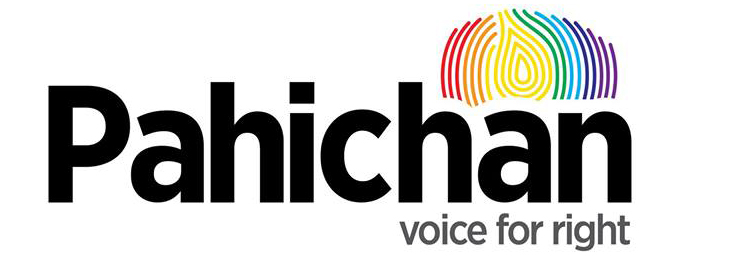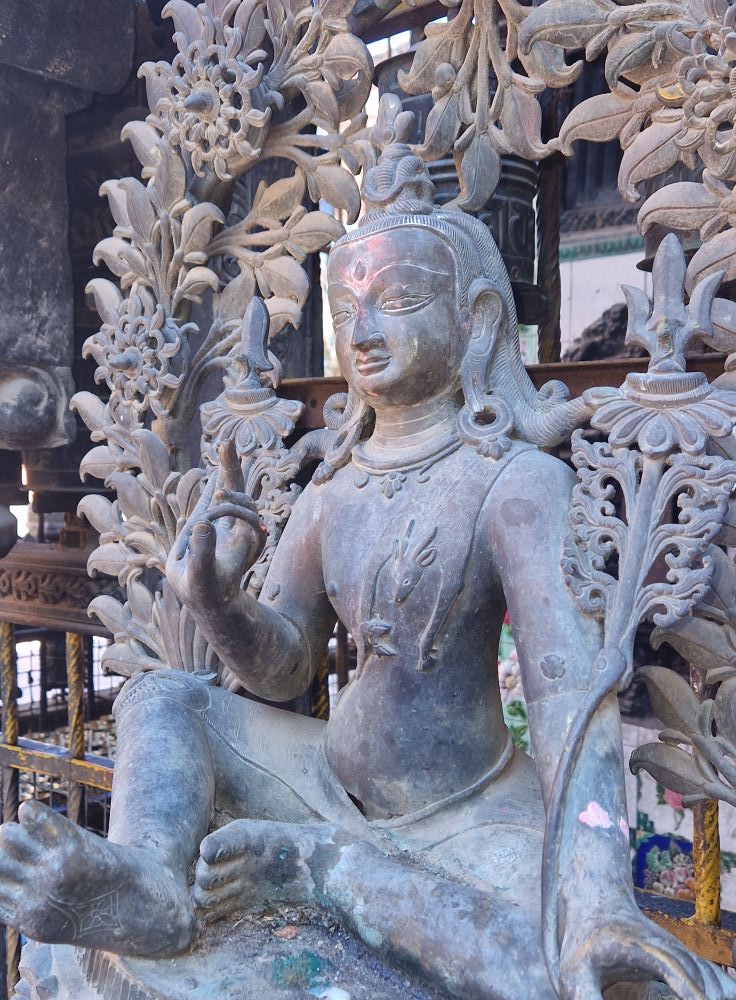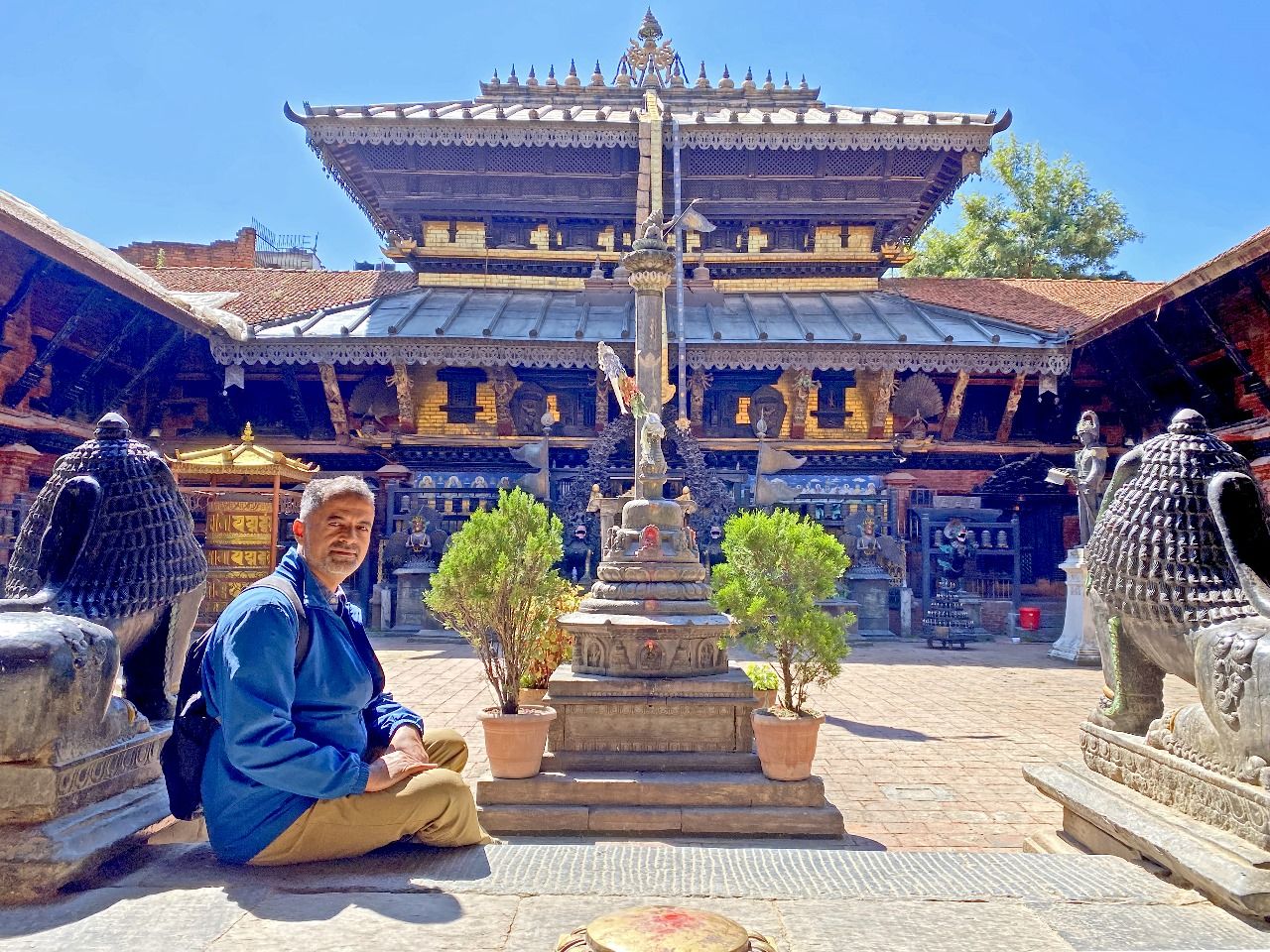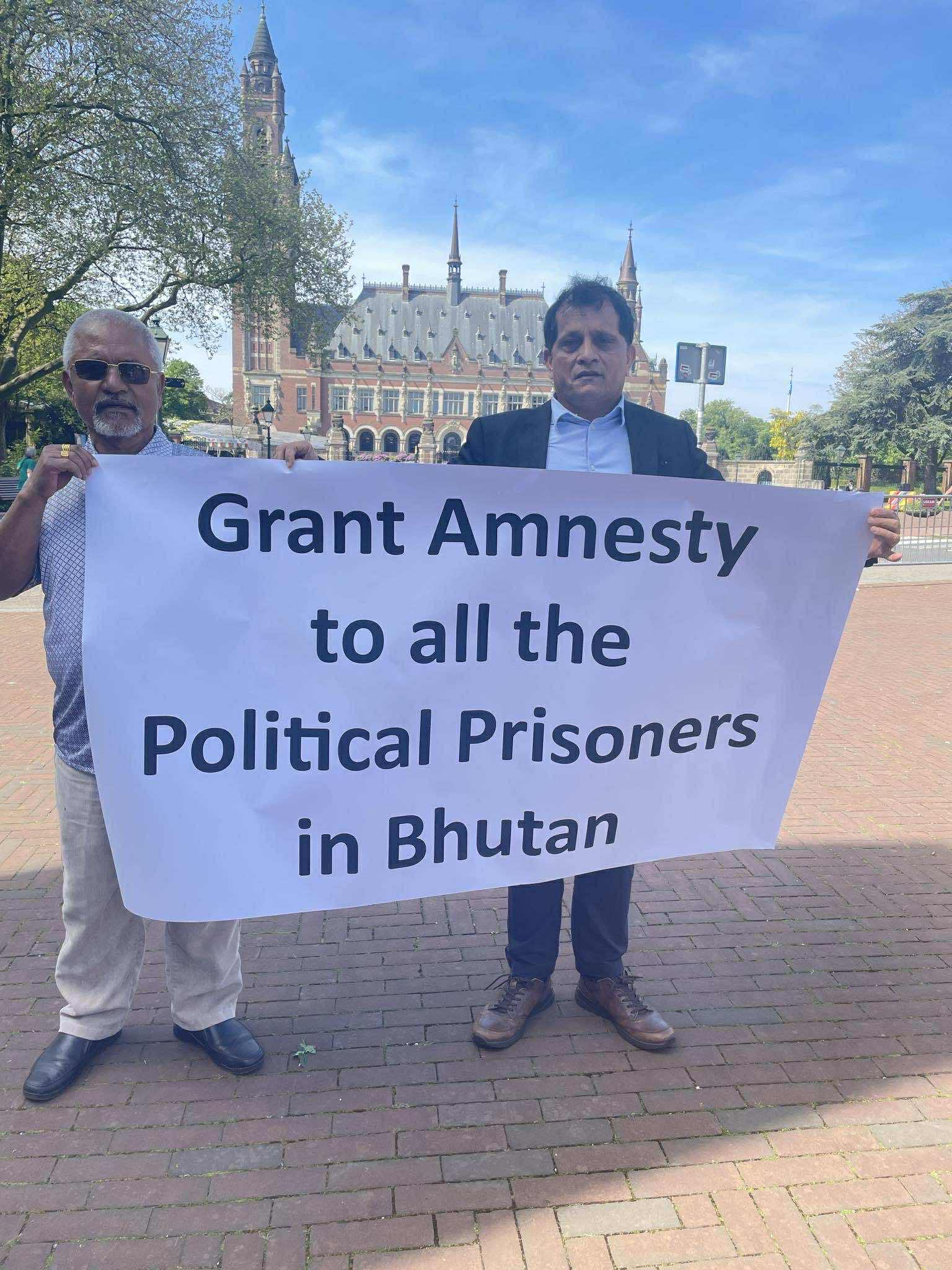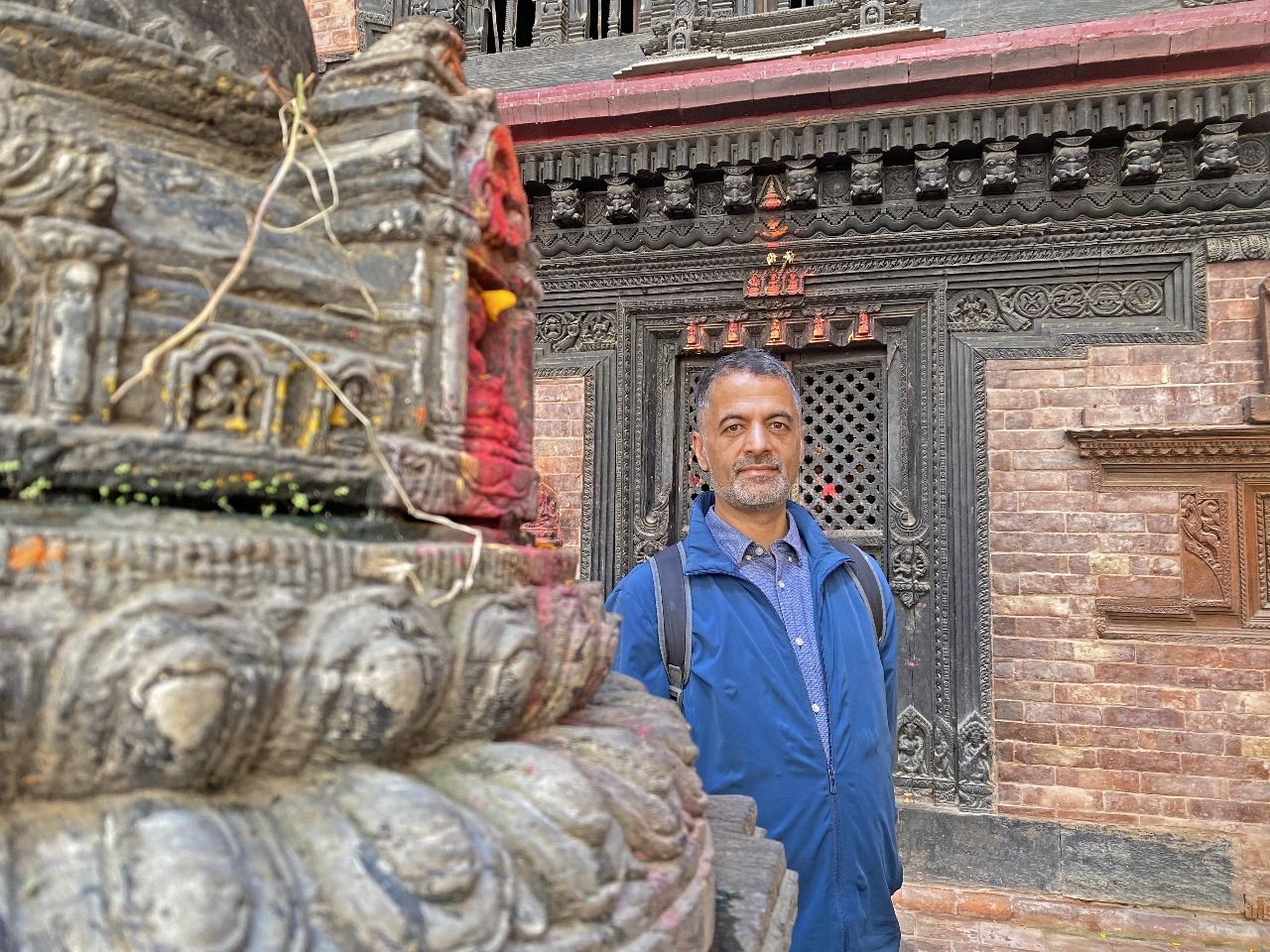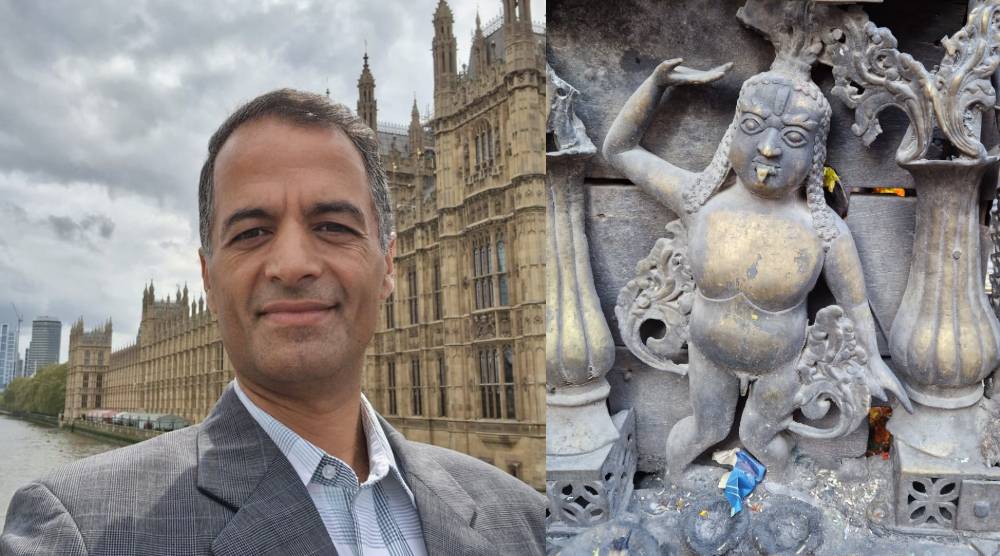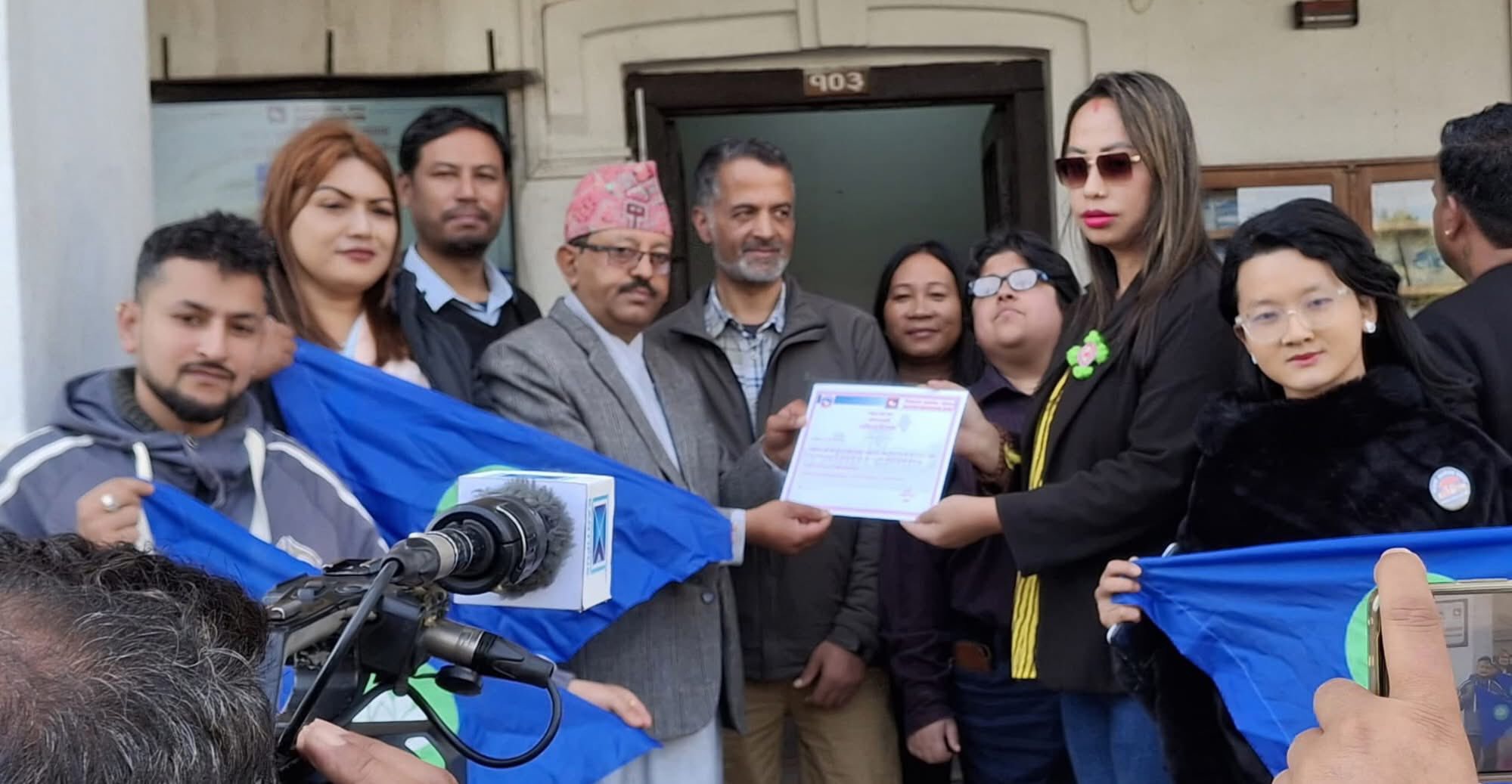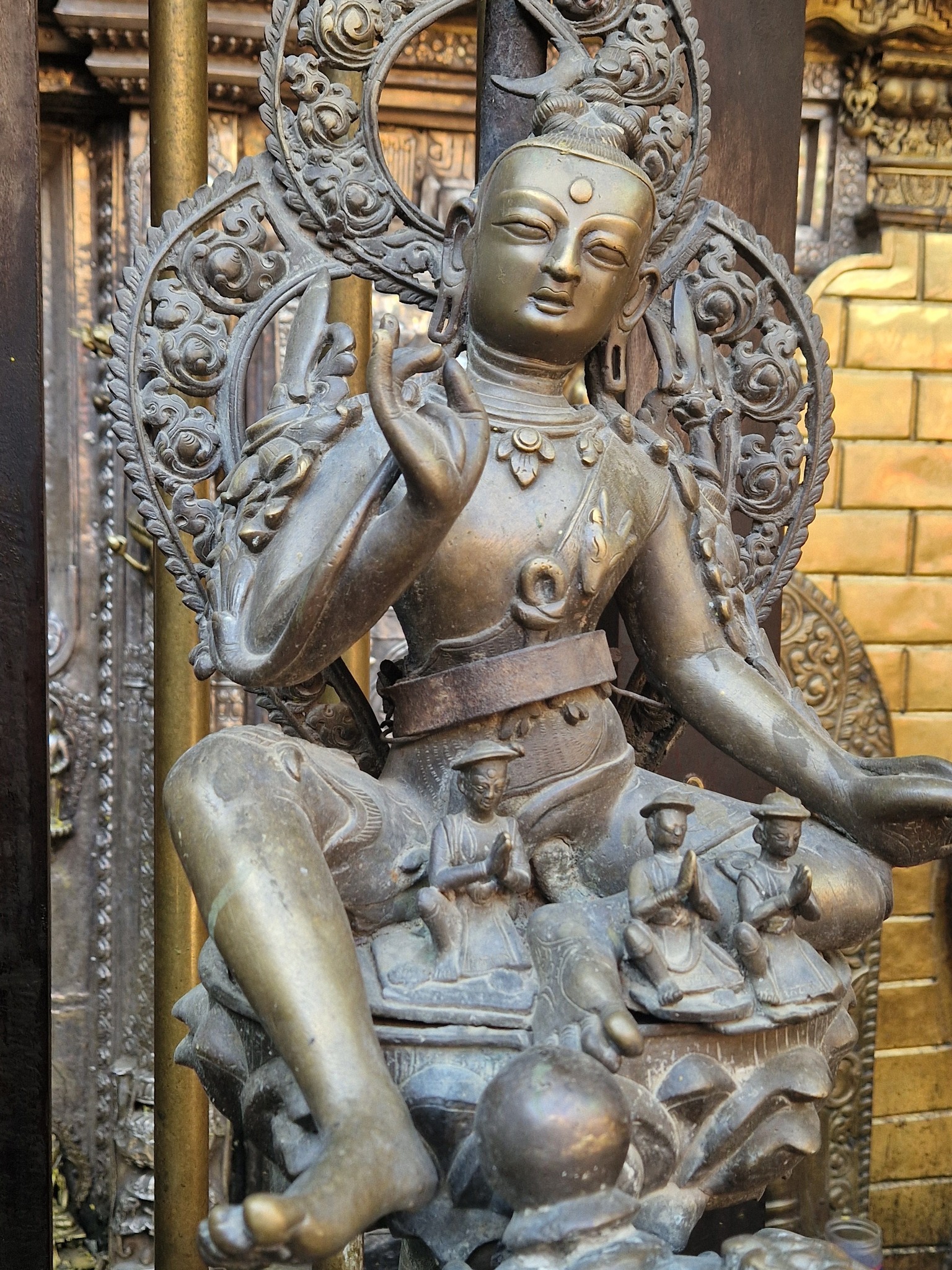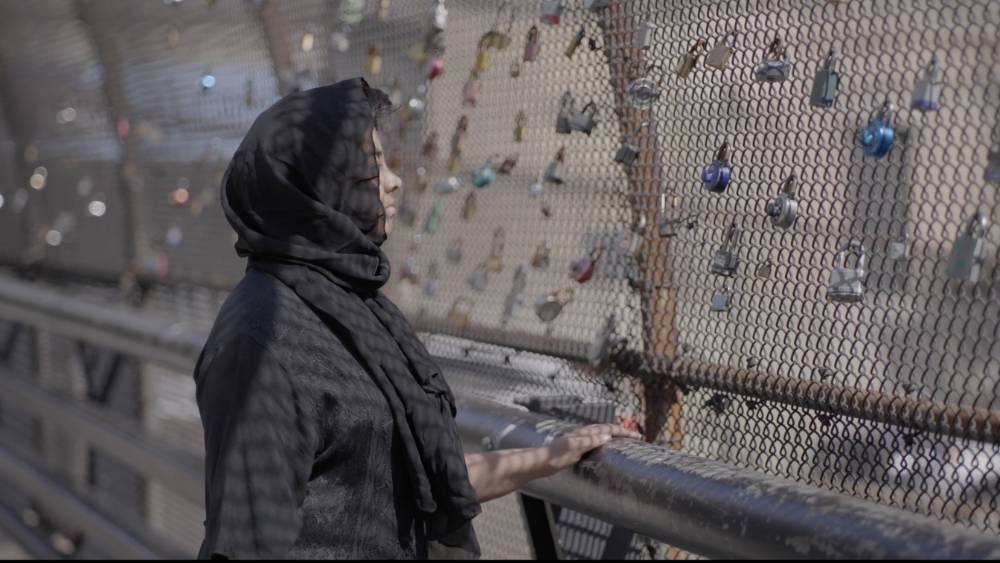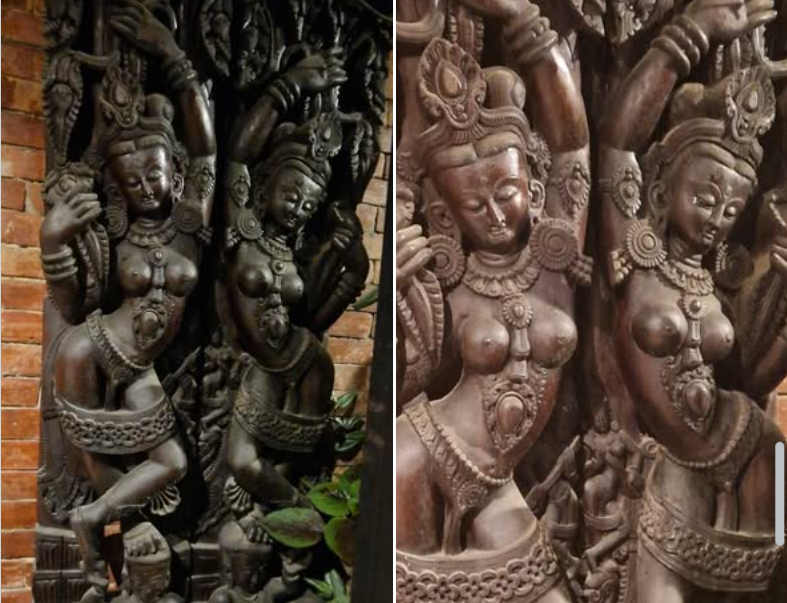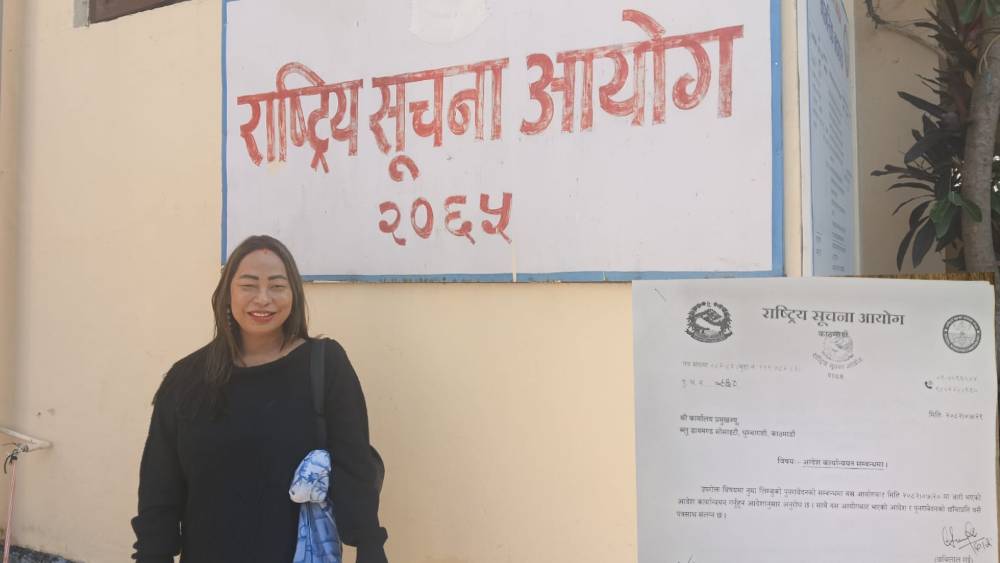While many know the arguments for and against equality from Christians, Muslims and Jews, have you considered the world’s other major religions?
In my last article for Gay Star News I was struck by the number of readers who commented that religion was our enemy.
If you think that, much of what follows will surprise you.
Hinduism
Hindu views of LGBTI issues are diverse and different Hindu groups have distinct views.
Overall homosexuality is regarded as one of the possible expressions of human desire. Although some Hindu dharmic texts contain injunctions against homosexuality, a number of Hindu mythic stories have portrayed same-sex experience as natural and joyful. There are even several Hindu temples with carvings that depict both men and women engaging in homosexual sex.
Hindu scriptures contain many surprising examples of diversity in both sex and gender. Many of the deities are androgynous and some even change gender in order to participate in homoerotic behavior.
For instance, medieval texts narrate how the god Ayyappa was born of intercourse between the gods Shiva and Vishnu when the latter temporarily took a female form.
In another story, hero-king Bhagiratha, who brought the sacred river Ganga from heaven to earth, was miraculously born to and raised by two co-widows, who made love together with divine blessing.
A number of 14th-century texts in Sanskrit and Bengali tell this story, including the Krittivasa Ramayana, a devotional text still extremely popular today. These texts explain that Bhagiratha’s name comes from the word bhaga (vulva), because he was born of two vulvas.
This behavior is not limited to gods. Another sacred text, the fourth-century Kamsutra, emphasizes pleasure as the aim of intercourse. It categorizes men who desire other men as a ‘third nature’.
The text goes on to subdivide such men into masculine and feminine types and describes their lives and typical occupations – including flower sellers, masseurs and hairdressers. It may be a stereotype by modern standards but it shows understanding.
The Karma Sutra also includes a detailed description of oral sex between men and refers to long-term unions between male partners.
Some right-wing Hindu groups, active both in India and in the United States, have expressed virulent opposition to homosexuality.
However, several modern Hindu teachers emphasize that all desire, homosexual or heterosexual, is the same, and that aspirants must work through and transcend desire.
For example, Hindu philosopher Jiddu Krishnamurti said that homosexuality, like heterosexuality, has been a fact for thousands of years, and that it becomes a problem only because humans focus too much on sex.
When asked about homosexuality, Sri Sri Ravi Shankar, founder of the international Art of Living movement, said: ‘Every individual has both male and female in them. Sometimes one dominates, sometimes other; it is all fluid.’
Mathematician Shakuntala Devi interviewed Srinivasa Raghavachariar, head priest of the Srirangam temple, in her 1977 book The World of Homosexuals. Raghavachariar told her same-sex partners must have been cross-sex partners in a former life. The gender may change, he said, but the soul retains its attachments; hence love impels them toward one another.
And when, in 2002, Hindu scholar Ruth Vanita interviewed a Shaiva priest who had performed the marriage ceremony for two women, the priest said that having studied Hindu scriptures, he had concluded ‘Marriage is a union of spirits. And the spirit is not male or female.’
So it is clear, there is nothing against homosexuality or same-sex relationships in Hinduism – homophobes who claim otherwise are merely using religion as a shield for their own prejudices.
Sikhism
Sikhism has no specific teachings about homosexuality andӬthe Sikh holy book, the Guru Granth Sahib, does not explicitly mention it.
Views on homosexuality tend not to be a primary concern in Sikh teachings, as the universal goal of a Sikh is to have no hate or animosity to any person, regardless of race, caste, color, creed, gender, or sexuality.
But while the holy scripture, Guru Granth Sahib Ji, does not explicitly mention homosexuality, it does encourage married life time and again. And whenever marriage is mentioned, it is always in reference to a man and a woman.
Sikhs consider Guru Granth Sahib Ji to be the complete guide to life and salvation. As a result, some Sikhs believe that if a marriage between two people of the same sex is not mentioned, it is therefore not right.
The counter argument is that marriage is mentioned as a spiritual unity and since the soul does not have a gender, homosexuality should be permitted.
This argument is not enough though, to secure gay and lesbian marriages in the Sikh temples, the Gurdwara Sahibs. The religion only allows ceremonies which are clearly permitted to be conducted in their places of worship.
Sikhism does not hate LGBTI people or believe that homosexuals are damned to hell. Gurbani, the Sikh gurus, tell us that God is without hatred and animosity. We are all children of God.
Likewise, the temples, Gurdwara Sahibis, are open to all. God loves everyone regardless of one’s thoughts or actions. LGBTIs are free to attend the Gurdwara Sahib and participate in services.
There is still controversy, however.
GianiӬJoginder Singh Vedanti, of the Akal Takht (the temporal Sikh authority in India), has condemned homosexuality while reminding visiting Sikh-Canadian Members of Parliament (MPs) of their religious duty to oppose same-sex marriage.
In a report published in March 2005, Vedanti said: ‘The basic duty of Sikh MPs in Canada should be to support laws that stop this kind of practice of homosexuality, because there are thousands of Sikhs living in Canada, to ensure that Sikhs do not fall prey to this practice.’
However, the Sikh-Canadian MP voted in support of marriage equality. Many Sikhs believe there is nothing wrong with homosexuality in Sikhism, and reject what is said by some of the preachers.
The greatest argument has to be the fundamental Sikh belief in equality – and here, at least, LGBTIs are on a strong footing.
Buddhism

Is homosexuality forbidden in Buddhism? Is it sexual misconduct? Let’s look at what Gautama Buddha, the founder of the religion says.
Gautama Buddha stated in one of the five precepts that lay-people should refrain from sexual misconduct. He never really elaborated on this point, only to say that a man should not fool around with a woman who is married or betrothed.
He did of course say in the Vinaya, which are the rules for monks and nuns, that they have to take a vow of celibacy, but no such rule was made for lay-people.
Buddha taught the five precepts to steer us away from cause harm to ourselves and others. It should be noted here that the precepts are not commandments, and are five things we should try to refrain from.
If the sexual act is not going to cause harm it should be consensual, affectionate, loving and not breaking any marriage vow or commitment. It should also not be abusive, such as sex with an under-age person or rape, and this includes forcing your partner into having sex.
So I believe in this way a consenting, loving homosexual act isn’t in any way against Buddha’s teachings.
Secondly we should look to Buddha’s last words as he was dying.
At the time the Venerable Anand, his companion, was weeping because Buddha was leaving the body and he said to Buddha: ‘You are leaving and I have not yet become enlightened. What about me? What will happen to me? The world will be absolutely dark for me – you were the light. And now you are going. Have compassion on us.’
Buddha opened his eyes and said ‘Appo deepo bhava’, which means ‘Be a light unto yourself’ – don’t follow anybody.
Buddha asked us to follow the light within us.
So it is clear there is nothing wrong with homosexuality if it is within us and if we do not harm the rights of other people or ourselves.
The celibate Dalai Lama has thrown his considerable moral weight behind equal marriage, condemning homophobia and saying lesbian and gay sex is fine as long as it is consensual.
Jainism

Jainism has not condemned homosexuality but it shuns all sexuality with the exception of procreation within a marriage.
This translates into no homosexual sex but does that mean it specifically shuns homosexuality? No. It reacts to homosexuality the same way it would pre-marital sex. Even sex within heterosexual marriage is only acceptable due to the need for more people to practice Jainism.
Jainism does not want to promote one sexuality or the other. All sexuality is oppressed, it just so happens that homosexual sex can not be for procreation, married or not, and therefore is not allowed at all.
So no follower from any of these faiths can claim ‘my religion says homosexuality is wrong’. At most, they can say that homosexuality is not formally endorsed by the faith – and even that requires a selective reading of the evidence.
Surely all religious heads have the moral and religious duty to re-think this issue in a modern light.
Copy : http://www.gaystarnews.com
